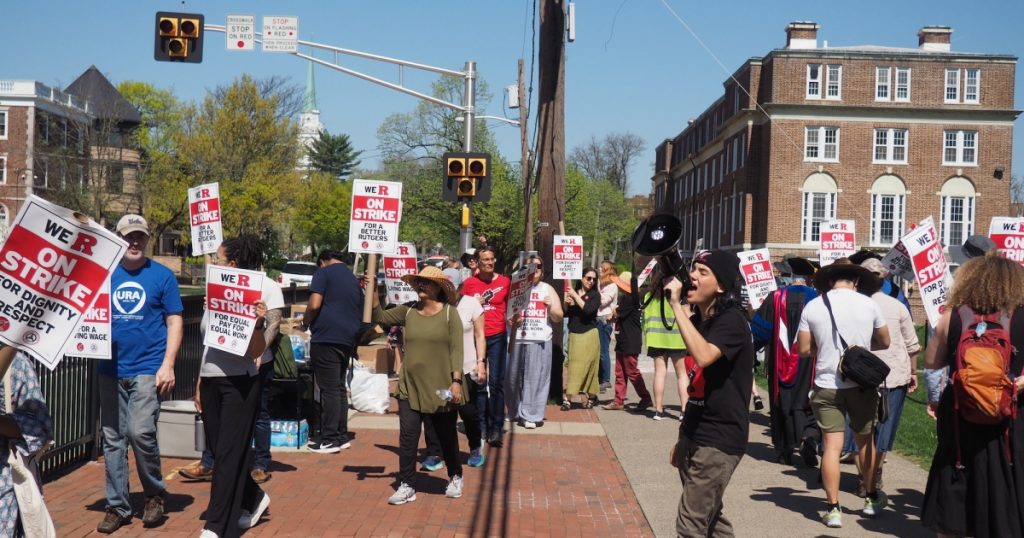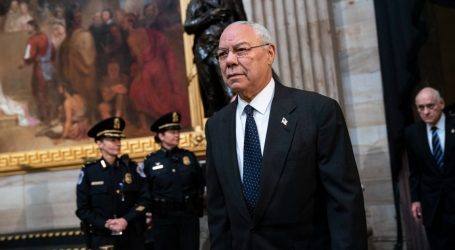Rutgers Faculty Unions Suspend Historic Strike After Securing Major Victories
Rutgers faculty and supporters on the picket line on Thursday.Noah Lanard/Mother Jones
Fight disinformation: Sign up for the free Mother Jones Daily newsletter and follow the news that matters.Three unions representing 9,000 faculty members at Rutgers University are suspending their strike after reaching a tentative framework on Friday night with Gov. Phil Murphy (D-NJ) and his staff.
After more than nine months without a contract, faculty unions and the Rutgers administration worked out the deal in marathon negotiations in Trenton. The framework secures major pay increases for union members, along with improvements in job security, working conditions, and other areas. Classes will resume on Monday.
Rutgers faculty had never before gone on strike in the university’s 257-year history. In a show of cross-faculty solidarity, unions prioritized improving conditions for the poorly paid adjunct faculty and graduate student workers that Rutgers relies on to teach many of its courses. Their success could serve as a model for faculty at universities across the country.
“This was a campaign…where those in our community at Rutgers who have the most on the faculty, who get paid the highest, who have the most job security, were in this fight not for themselves but those who have the least,” Rutgers Adjunct Faculty Union President Amy Higer said during a virtual town hall meeting on Saturday. “That is really important and we should all know that.”
Rutgers University President Jonathan Holloway called the framework “fair and equitable.” Union leaders told members they “believe we have secured profound victories.” Among other wins, Rutgers AAUP-AFT President Rebecca Givan said during the town hall that graduate student workers would see their pay go from about $30,000 today to $40,000 starting in 2025.
Carla Katz, who represents non-tenure track faculty, said the framework provides tenure-like job protections for NTTs—a “radical improvement” over the status quo. “I don’t believe there is a university in the United States that has the degree of job security that our non-tenure-tracks will have going forward,” she added.
Adjunct faculty would have increased job security and receive a more than 40 percent increase in pay over the course of the contract. The next step is for the unions’ executive boards to approve the tentative framework.
Higer told union members and the media on Saturday that a key lesson of the strike is that contingent faculty can be organized. “We were told it was impossible. We’ve been doing this for four years. It’s hard. It takes a long time. But it is possible,” she explained.
“So, anybody out there who is involved in anything in their future or present time where you’re told you cannot organize contingent people who are working part-time: It is not true,” Higer continued. “You can. It’s possible. We did it.”





